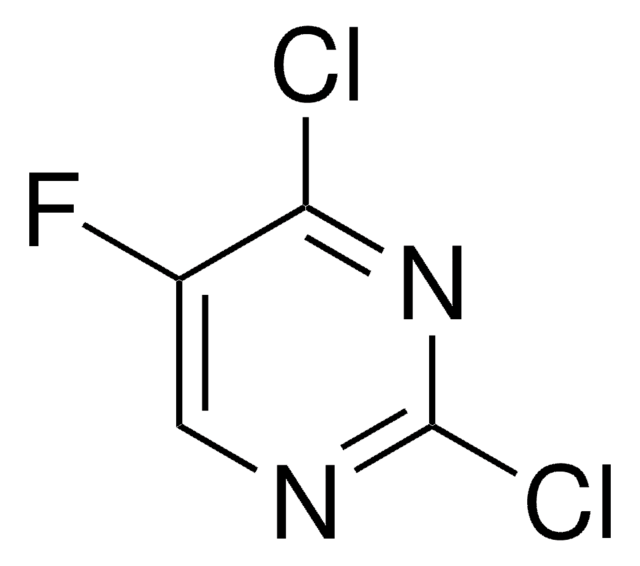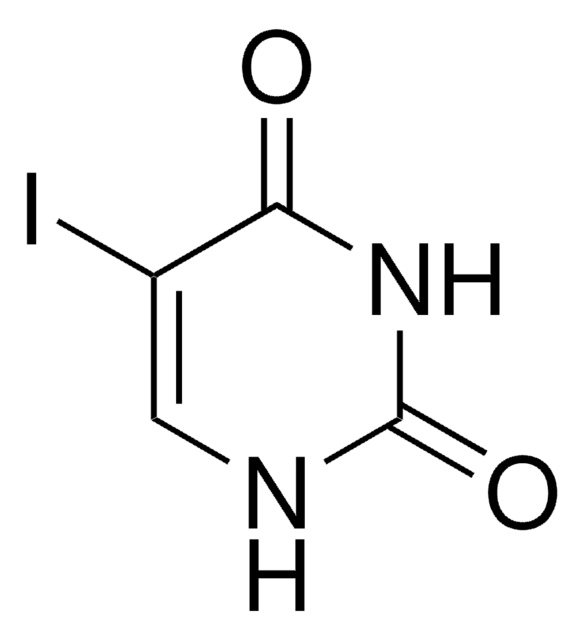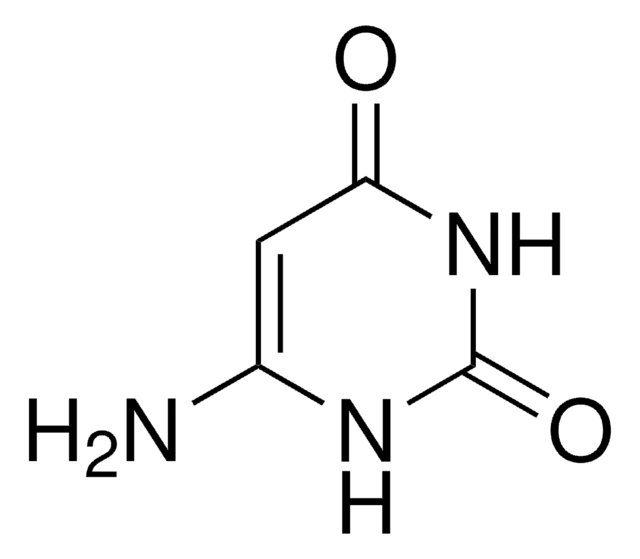224588
5-Chlorouracil
ReagentPlus®, 99%
Synonym(s):
5-Chloro-2,4-dihydroxypyrimidine, 5-Chloropyrimidine-2,4(1H,3H)-dione
About This Item
Recommended Products
Quality Level
product line
ReagentPlus®
Assay
99%
form
solid
mp
>300 °C (lit.)
solubility
1 M NH4OH: soluble 50 mg/mL
functional group
chloro
SMILES string
ClC1=CNC(=O)NC1=O
InChI
1S/C4H3ClN2O2/c5-2-1-6-4(9)7-3(2)8/h1H,(H2,6,7,8,9)
InChI key
ZFTBZKVVGZNMJR-UHFFFAOYSA-N
Looking for similar products? Visit Product Comparison Guide
General description
Application
Legal Information
Not finding the right product?
Try our Product Selector Tool.
Signal Word
Danger
Hazard Statements
Precautionary Statements
Hazard Classifications
Acute Tox. 3 Oral - Muta. 2
Storage Class Code
6.1C - Combustible acute toxic Cat.3 / toxic compounds or compounds which causing chronic effects
WGK
WGK 3
Flash Point(F)
Not applicable
Flash Point(C)
Not applicable
Personal Protective Equipment
Choose from one of the most recent versions:
Already Own This Product?
Find documentation for the products that you have recently purchased in the Document Library.
Our team of scientists has experience in all areas of research including Life Science, Material Science, Chemical Synthesis, Chromatography, Analytical and many others.
Contact Technical Service










